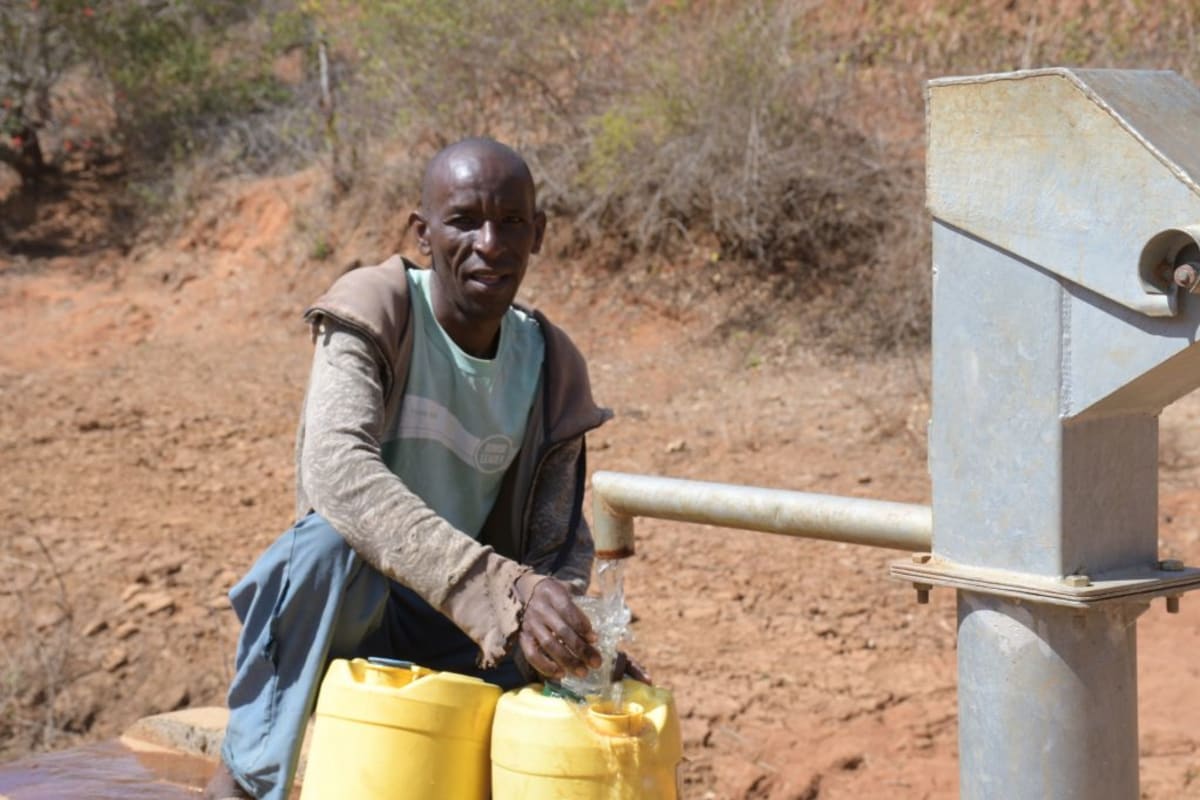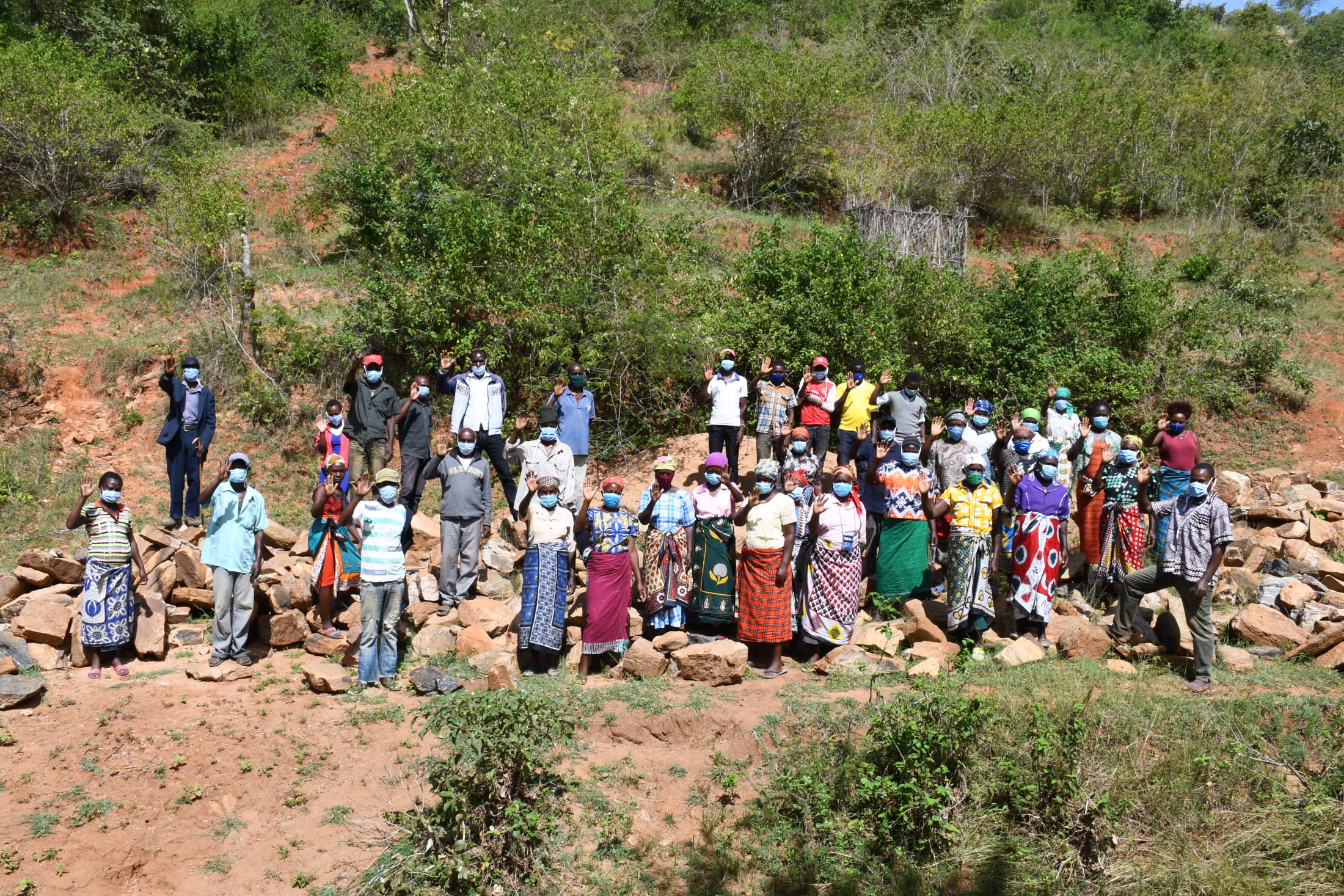
On an average day for Ngongo community members, the women and children wake up at 6:00 am. The women go to fetch water to prepare breakfast for the family as the children prepare to go to school.
The main water source for this community is a seasonal river bed. People fetch water directly from the river or dig scoop holes when it begins to dry up to find water stored under the sand.
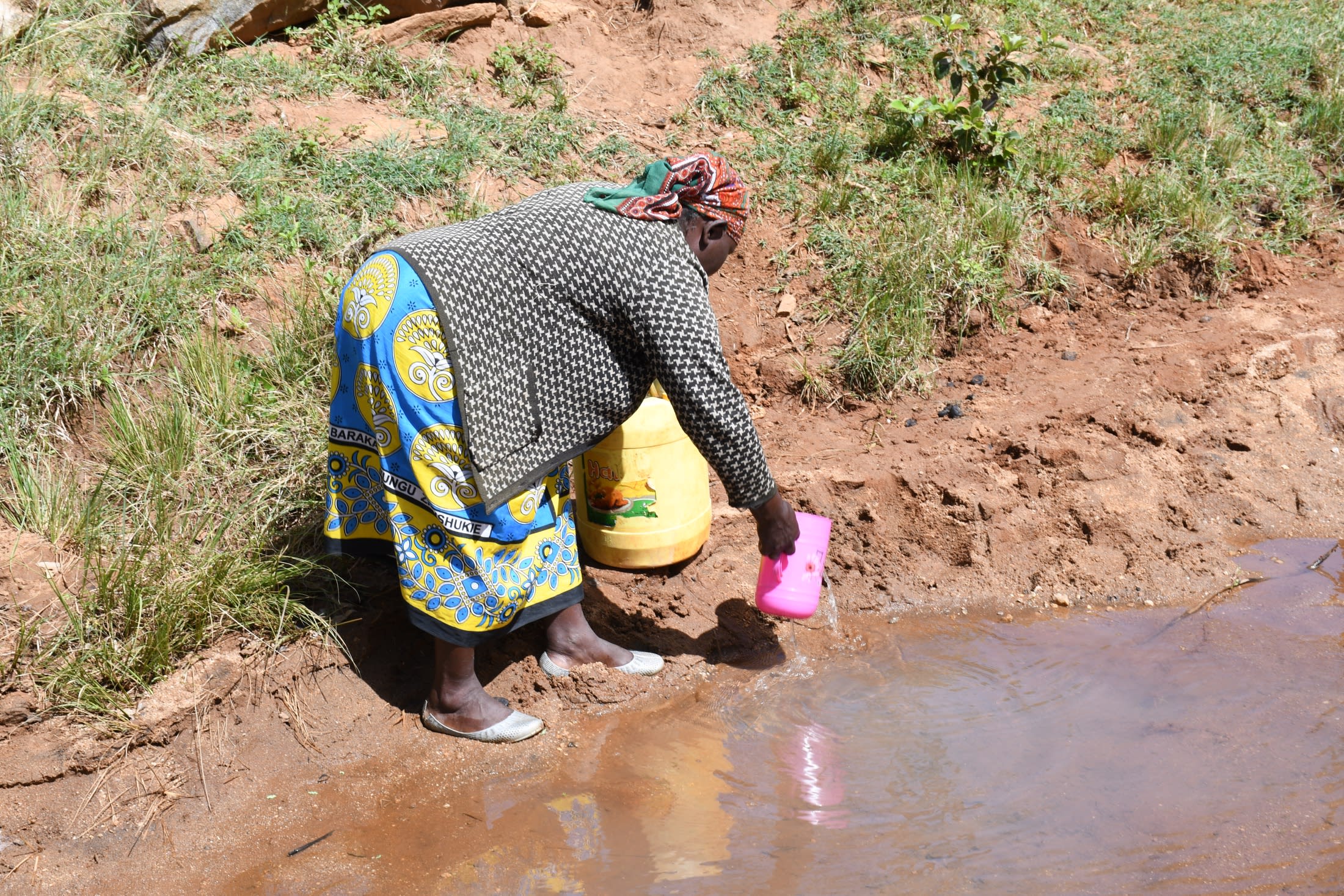
On the other hand, the men wake up to go to the farm to get Napier grass for the livestock and run errands. Many community members in this locality rely on small-scale farming of indigenous crops such as pigeon peas, cowpeas, maize, beans, and green grams. Others engage in livestock farming, rearing goats and cows on their small pieces of land.
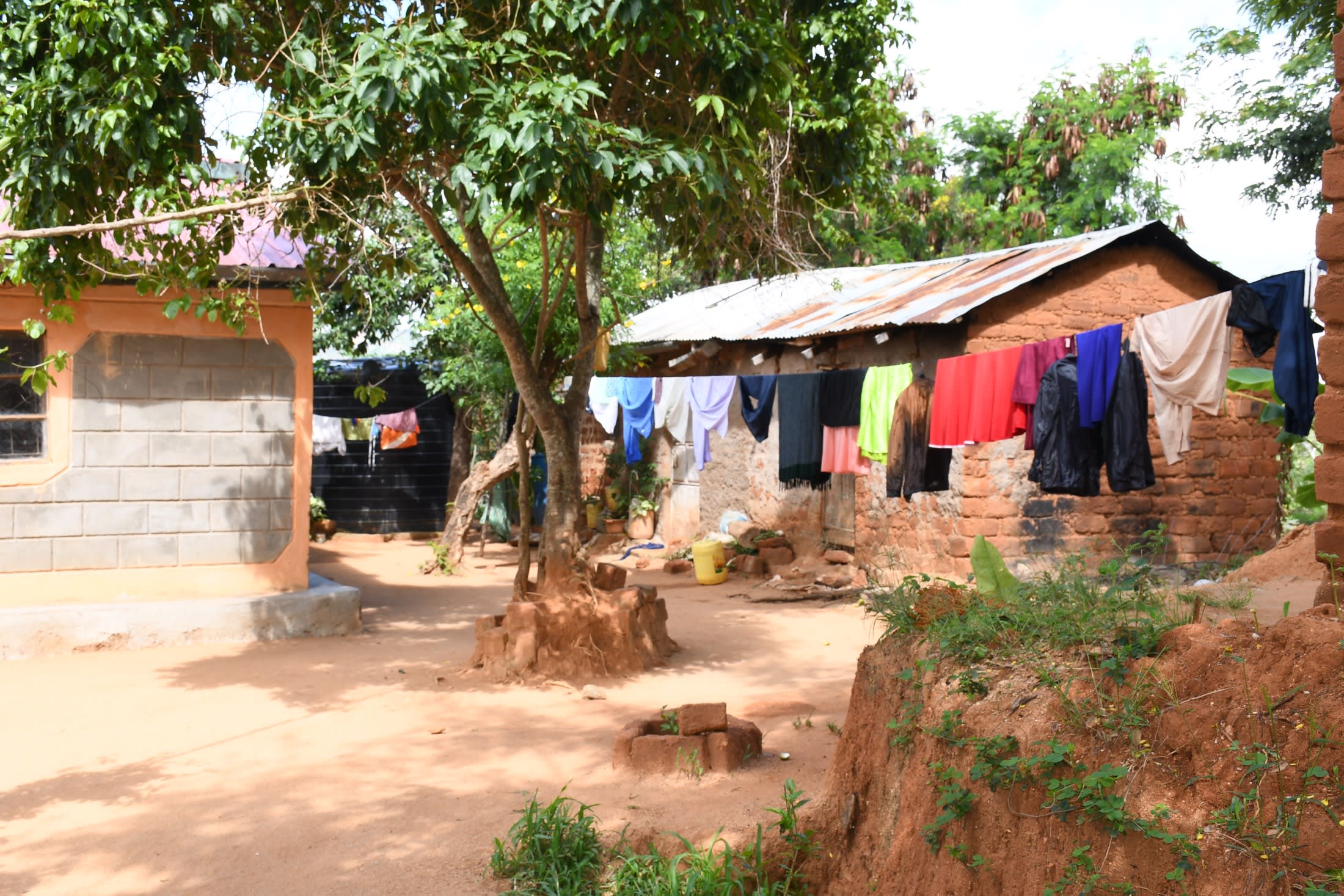
During the day, the women wash the family’s clothes, tidy up the house, wash utensils, and prepare lunch and supper for the family. Depending on the family's size and water needs, many women and children may be required to travel back to the water source multiple times to get water for their use at home.
Most households report traveling 30 minutes to an hour to get water. For some families, the journey is more than 2 hours.
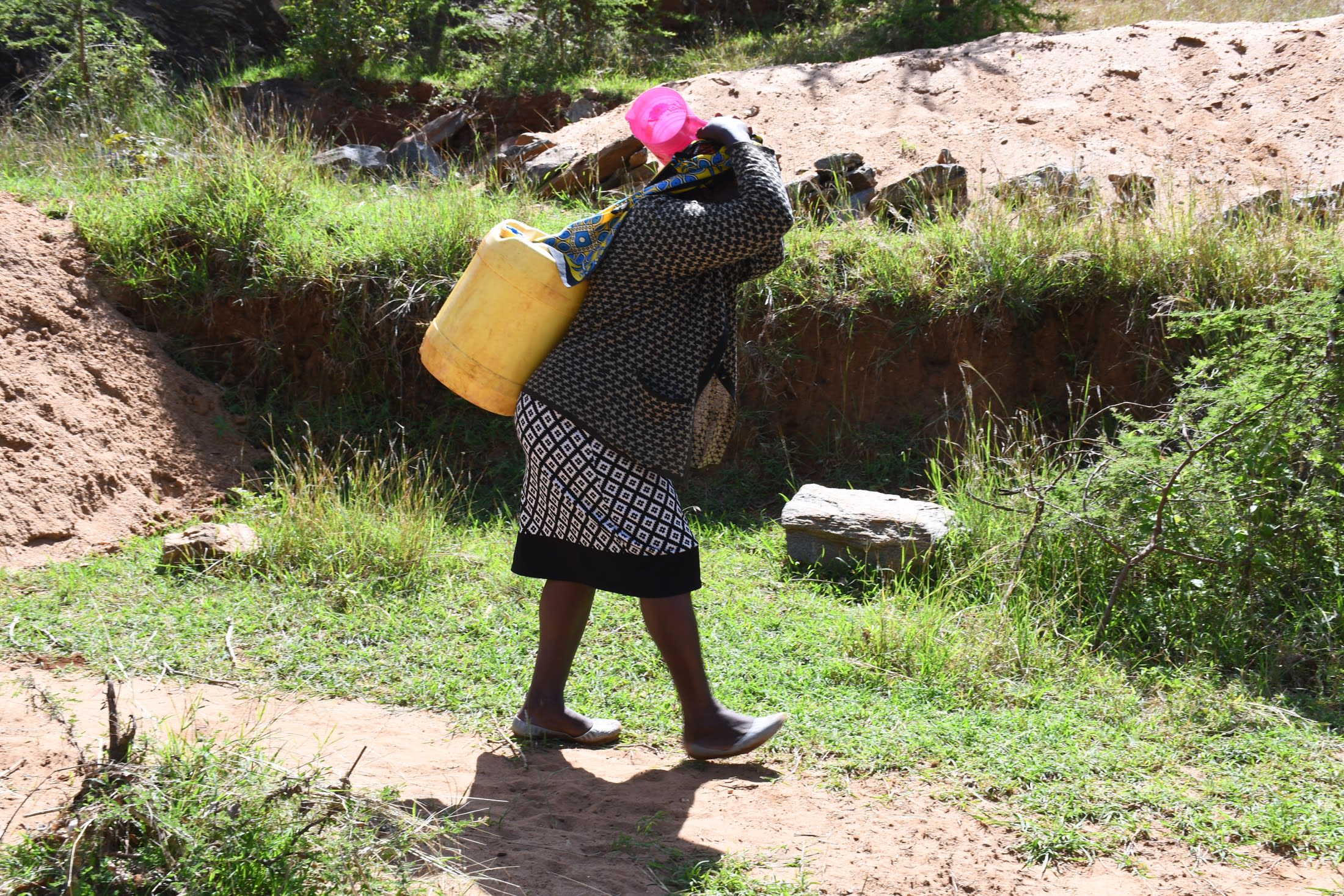
All of this time and effort is spent to fetch water that is not safe for consumption and unreliable. During the dry season, people walk even longer, searching for spots along the riverbed that still have water. Or they have to dig deep scoop holes to get the water.
"Fetching water is never easy, the distances are long, and sometimes it takes long waiting at the scoop holes. The water is not always clean which even makes matters worse. Even when walking with donkeys, we arrive home tired and unable to help in other household chores," explained 11-year-old Daniel K.
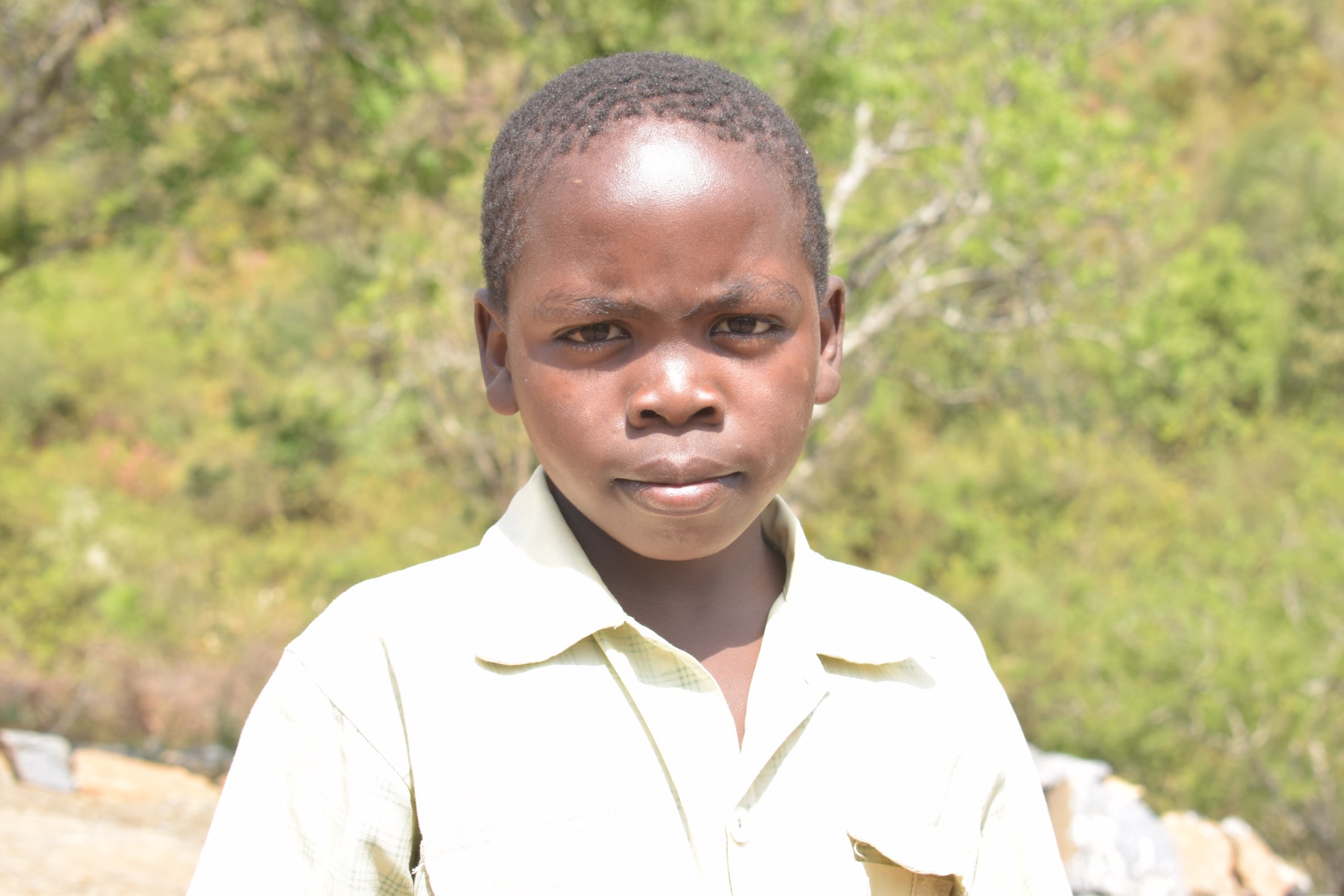
We also spoke with farmer John Mutunga who added, "We have been facing water challenges in our community since time immemorial. The search for water is always a whole day affair, affecting our development as people because the time to engage in other economic activities is limited. Any support in a water project will be a dream come true and a life-changing affair to all of us here."
Reliable Water for Ngongo
Our main entry point is the Yanzoi Maithya Self-Help Group, which is comprised of households that are working together to address water and food scarcity in their region. These members will be our hands and feet in both constructing water projects and spreading the message of good hygiene and sanitation to everyone.
Hand-Dug Well
This particular hand-dug well will be built adjacent to a sand dam project, which will supply clean drinking water once it rains. We have supplied the group with the tools needed for excavation. With the guidance of our artisans and mechanics, the excavated well will be cased, sealed with a well pad, and then finished with a new AfriDev pump.
Excavation takes a month or more on average, depending on the nature of the rock beneath. Construction of the well lining and installation of the pump takes 12 days maximum. The well will be lined with a concrete wall including perforations so that once it rains, water will filter in from the sand dam.
This well will bring clean water closer to families.
New Knowledge
These community members currently do their best to practice good hygiene and sanitation, but their severe lack of water has been a big hindrance to reaching their fullest potential.
We will hold hygiene and sanitation training sessions with the Self-Help Group members and other community members to teach about important hygiene practices and daily habits to establish at the personal, household, and community levels. This training will help ensure that participants know they need to make the most out of their new water point as soon as the water is flowing.
One of the most important topics we plan to cover is the handling, storage, and treatment of water. Having a clean water source will be extremely helpful, but it is useless if water gets contaminated by consuming it. We will also emphasize the importance of handwashing.
The community and we strongly believe that all of these components will work together to improve living standards here, which will help unlock the potential for these community members to live better, healthier lives.
We typically work with self-help groups for 3 to 5 years on multiple water projects. We will conduct follow-up visits and refresher training during this period and contact the group after all of the projects are completed to support their efforts to improve sanitation and hygiene.

 Protected Dug Well
Protected Dug Well
 Rehabilitation Project
Rehabilitation Project































